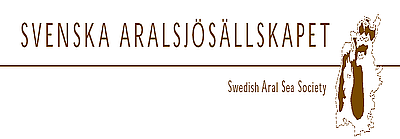8c.
Social sustainability, happiness and the one-planet-life
What do we mean by socially sustainable? Leanne Barron and Erin Gauntlett at Murdoch University of Western Australia say that “Socially sustainable communities are equitable, diverse, connected and democratic and provide a good quality of life.” Is this possible? Will basic human needs be satisfied in a society where the outer conditions is determined by the carrying capacity of the planet and the possibilities of other life forms to thrive as well? Will the inhabitants of a sustainable society be happy and well, or poor and needy? In this sub-session we will examine issues related to the individual. In Chapter 9 on the The political dimensions of sustainability we will look at the issues from the perspective of the society.
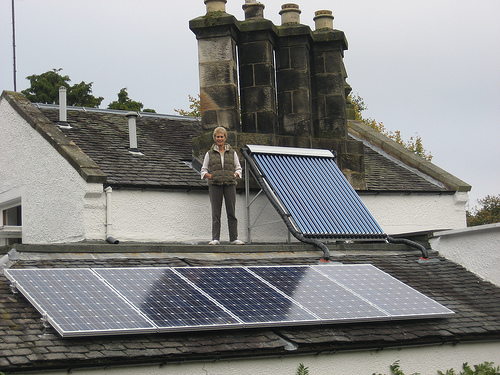
The transition to a sustainable society requires that we live a one-planet-life. We need to reduce our consumption of resources to those available in the long term, to the carrying capacity of the planet. This will certainly include a number of technical adjustments, such as houses needing less heating, and cars not running on fossil fuels. But it will also require changes in lifestyles. An example is the Swedish family, which experimentally got all the technical devices in a new house (low energy house with solar panel and PV cells) to live a low carbon life. When it was time for ski vacation the air trip to the Alps was not allowed within the carbon budget. They had to take the train to the Swedish mountains. Not necessarily worse, but a change. Nor was it possible to use the private car for commuting to work, but rather public transport and biking, and they had fewer dinners with steaks, and had to be more careful with waste sorting.
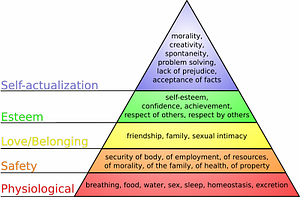 Basic human needs have been much researched. The model proposed by American psychologist Abraham Maslow already in the 1940s includes five levels of needs: first physiological needs, such as food, water and air; next the individual's safety and security such as personal security, financial security, health and well-being; thirdly social needs including feelings of belongingness, friendship, intimacy, and family; fourth, the need to be respected and to have self-esteem and self-respect; and finally self-actualization: “What a man can be, he must be”. Viktor Frankl, with experience from the holocaust, later added self-transcendence, spiritual needs. Chilean philosopher Manfred Max-Neef, as well as others, have later criticized the level structure and argued that fundamental human needs are non-hierarchical.
Basic human needs have been much researched. The model proposed by American psychologist Abraham Maslow already in the 1940s includes five levels of needs: first physiological needs, such as food, water and air; next the individual's safety and security such as personal security, financial security, health and well-being; thirdly social needs including feelings of belongingness, friendship, intimacy, and family; fourth, the need to be respected and to have self-esteem and self-respect; and finally self-actualization: “What a man can be, he must be”. Viktor Frankl, with experience from the holocaust, later added self-transcendence, spiritual needs. Chilean philosopher Manfred Max-Neef, as well as others, have later criticized the level structure and argued that fundamental human needs are non-hierarchical.
From a sustainability perspective it is relevant to observe that none of these needs refer to having many things, consumerism, or travelling over the world, or other parts of modern life which consumes many resources. Also in research on energy use it is clear that what people appreciate the most consumes least energy. Thus being with friends and family or the loved one does not cost much energy, while daily commuting to work, which takes much energy, is not popular. The the world's carrying capacity may then be enough for all of us. Mahatma Gandhi in a famous statement ones said: “The world has enough for everyone’s need, but not enough for one person’s greed”, when talking on a society based on Sarvodaya — the well-being of all.
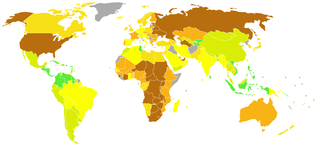 The recently developed happiness research stresses that numerous studies have clearly shown that subjective well-being and material wealth are only loosely coupled. Perceived well-being in western industrialised countries peaked around 1970 or so, while economic development and resource use has continued to increase without resulting in any increase in perceived well-being (See also Chapter 10b). Immaterial factors which contribute to quality of life – such as leisure, having meaning and purpose, relationships, social participation and self-fulfilment – become more and more important. The research area ‘Sustainable Quality of Life’ of Sustainable Europe Research Institute (SERI) stresses these positive relations between sustainable development and a high quality of life. If sustainable development policies and strategies want to be successful, they have to influence our quality of life in positive ways.
The recently developed happiness research stresses that numerous studies have clearly shown that subjective well-being and material wealth are only loosely coupled. Perceived well-being in western industrialised countries peaked around 1970 or so, while economic development and resource use has continued to increase without resulting in any increase in perceived well-being (See also Chapter 10b). Immaterial factors which contribute to quality of life – such as leisure, having meaning and purpose, relationships, social participation and self-fulfilment – become more and more important. The research area ‘Sustainable Quality of Life’ of Sustainable Europe Research Institute (SERI) stresses these positive relations between sustainable development and a high quality of life. If sustainable development policies and strategies want to be successful, they have to influence our quality of life in positive ways.
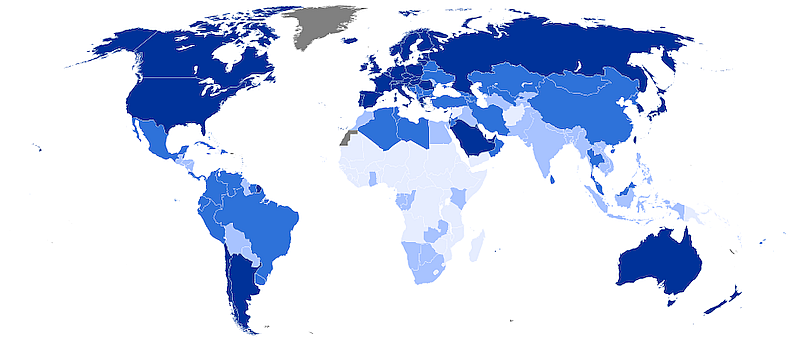
There are several indices to monitor human wellbeing. Most established might be the United Nations Human Development Index, HDI, which includes the three indicators child survival, purchasing power and education. Values of HDI are available for most countries in the world. A sustainable society is seen as a society where human well-being is high enough (HDI > 0.8) and ecological footprint low enough (<.1.8 global ha/cap) (See www.footprintnetwork.org). Other more developed indices include the Weighted Index of Social Progress, WISP, by Richard Estes to measure the amount of well-being in different societies, which uses up to 40 different indicators.
To measure of the development of a country most countries use the Gross Domestic Product GDP, which is the total economic turnover, but several alternatives have been proposed. The Genuine Progress Indicator, GPI measures whether a country's growth, increased production of goods, and expanding services have actually resulted in the improvement of the well-being of the people. In GPI negative costs, such as costs for environmental impacts, are subtracted from GDP. The Gross National Happiness, GNH, proposed in Bhutan already in the 1970s based on Buddhist ideals suggests that beneficial development of human society takes place when material and spiritual development occur side by side to complement and reinforce each other. The four pillars of GNH are the promotion of sustainable development, preservation and promotion of cultural values, conservation of the natural environment, and establishment of good governance. Both GNH and GPI are based on the assumption that subjective measures like well-being are more relevant and important than more objective measures like consumption.
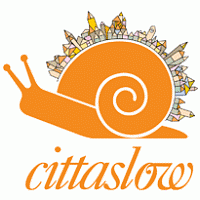 Many cities have developed programs for social sustainability, then referring to social and democratic reforms often with a focus on public health. There is however no consensus on what constitutes social sustainability (rather what is not included). You may say it is an attempt to develop a life pattern based on quality rather than quantity. An interesting initiative is the Cittàslow movement. Città is Italian for cities and Cittàslow refers to “slow cities.” Here the efficient fast life style is abandoned for a slower more quality-based pattern, e.g. in food (local food, not global fast food) or traffic patterns, and pursuing the unique qualities of the city. The slow cities movement exist in several countries.
Many cities have developed programs for social sustainability, then referring to social and democratic reforms often with a focus on public health. There is however no consensus on what constitutes social sustainability (rather what is not included). You may say it is an attempt to develop a life pattern based on quality rather than quantity. An interesting initiative is the Cittàslow movement. Città is Italian for cities and Cittàslow refers to “slow cities.” Here the efficient fast life style is abandoned for a slower more quality-based pattern, e.g. in food (local food, not global fast food) or traffic patterns, and pursuing the unique qualities of the city. The slow cities movement exist in several countries.
The European value studies (now expanded to world value studies) is a research programme since many years repeatedly investigating the values (ethics) of different cultures and countries. The most important values are quite different in different societies. Very interesting is the analysis of so-called social capital in the countries. Social capital is understood as the trust inhabitants have in each other. It is uniquely high in the Nordic countries, while much less for Eastern and Central Europe, where trust most typically is in the family rather than in society at large. Social capital has been seen as a crucial part of social sustainability.
 On the highest level in the Maslowian stairs are the spiritual needs of the individual. Spirituality has a role in a sustainable lifestyle. As we have seen transition to a sustainable society will mean a less materialistic lifestyle, a slower life pace and more time with family and friends. It will also give more importance to the connection with Nature. A sustainable society also underlines the responsibility we all have for our common planet Mother Earth and all life forms. These values may be best expressed in the Earth Charter. The spiritual realm refer to ethics and values (See Chapter 1d) and since the sustainability concept is a normative concept, it is natural to see the spiritual dimension of a society developing with sustainability.
On the highest level in the Maslowian stairs are the spiritual needs of the individual. Spirituality has a role in a sustainable lifestyle. As we have seen transition to a sustainable society will mean a less materialistic lifestyle, a slower life pace and more time with family and friends. It will also give more importance to the connection with Nature. A sustainable society also underlines the responsibility we all have for our common planet Mother Earth and all life forms. These values may be best expressed in the Earth Charter. The spiritual realm refer to ethics and values (See Chapter 1d) and since the sustainability concept is a normative concept, it is natural to see the spiritual dimension of a society developing with sustainability.
Materials for session 8c
Basic level
- One Planet Living by WWF
- Your personal environmental management. Power Point by Lars Rydén, 2010
- Read the Sustainable lifestyle report by Stockholm Environment Institute, SEI
- Read the WWF Pocket Guide to a One Planet Lifestyle (pdf-file)
- The Five Levels of Maslow's Hierarchy of Needs by Kendra Cherry
- Maslow's Hierarchy of Needs by Huitt, Valdosta State University (2007).
Medium level (widening)
- Read the Overview in the Human Development Report 2011 - Sustainability and Equity: A Better Future for All by UNDP. p. 1-12.
- Listen to: Costing Not Less Than Everything: sustainability and spirituality in challenging times by Pam Lunn. The Swarthmore Lecture 2011.
- Quality-of-life research at Sustainable Europe Research Institute, SERI
- Read Baltic Sea Region, chapter 12: Social Capital and Traditional-Conservative Values in the Baltic Region.
- Study the List of Countries by Distribution of Wealth
Advanced level (deepening)
- Study the Woodbrooke Good Lives Project. A Quaker community working on the social, community, psychological and spiritual dimensions of climate change, peak oil, and sustainability.
- Study the Cittaslow cities and Transition Towns movement from the point of view of social sustainability.
- Study the Human Development Report 2016 - Human Development for Everyone by UNDP.
- Compare the different ways to measure progress and welfare:
Gross Domestic Product, GDP;
Genuine Progress Indicator, GPI;
Gross National Happiness, GNH;
Human Development Index, HDI and;
Weighted Index of Social Progress, WISP. - The Bill by Germanwatch (YouTube film)
References
Gonçalves, E. 2008. The WWF Pocket Guide to a one Planet Lifestyle. WWF International. Gland, Switzerland.
Maciejewski, W. (ed.) 2002. The Baltic Sea Region – Cultures, Politics, Societies. Baltic University Press, Uppsala.
UNDP. 2011. Human Development Report 2011 - Sustainability and Equity: A Better Future for All. United Nations Development Programme, New York, USA.
BUP Sustainable Development Course
